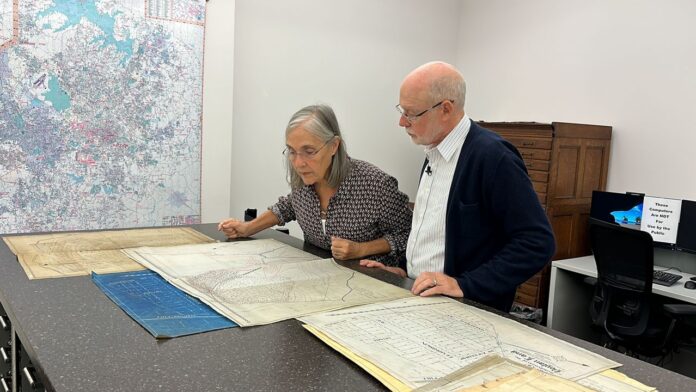WAKE COUNTY, N.C. — Racially restrictive covenants can be found all over North Carolina, and across the country, according to Wake County’s Register of Deeds.
However, many people don’t know those covenants exist or what they even are, and that’s where a new research project in Wake County comes in.
Racially restrictive covenants are clauses in property deeds preventing people who were not white from buying or living on land. Many researchers say these covenants were a tool to enforce segregation.
While covenants aren’t legal anymore, after a law passed 45 years ago, this new research effort is helping uncover that part of the past. Two volunteers working on the Wake County project say they believe history can help explain the present and help us navigate the future.
Robert Williams and Lisa Boccetti are the volunteers leading the Wake County Racially Restrictive Convenants Project.
“We have a deed from January 1943,” Williams said.
Williams and Boccetti, who are married, are looking through more than 100,000 Wake County property deeds.
“We’ve always done things together, except for the time we remodeled the bathroom together, and we haven’t done that again, and we will not be doing that again, and that is part of this 46-year (marriage),” Boccetti said.
While they share lighter moments like that, they’re looking for a part of the past that can be sobering to confront.
“I’m trying to identify all the deeds that have restrictive language in them,” Williams said. “Number five says that, ‘no persons of any race other than the Caucasian race shall use or occupy any building on any lot.’”
They’re combing through documents to figure out which pieces of land in Wake County have historic racial restrictions, preventing people in the past who were not white from buying or living on land.
“So, segregated neighborhoods were kind of built on the covenant. You can’t live here but you need to live somewhere. So this is the only area you can go,” Boccetti said.
Affordable housing is a common topic of conversation, and Boccetti believes the past offers context to that discussion.
“If we don’t understand how our community was built,” Boccetti said, “then how can we effectively find a way for all of us to live together in a better community now?”
Because covenants are not enforceable anymore, many people may not know they live on one, including Williams and Boccetti.
“You know, I didn’t. I had no idea that our home is covered by a restrictive covenant until I researched it just out of curiosity. And sure enough,” Boccetti said. “It can make you, it can make you sad. It can make you angry. It can make you feel helpless.”

An example of what the online database will look like. (Spectrum News 1/Kyleigh Panetta)
Williams has an IT background and Boccetti is a librarian. Their skills, and those of other volunteers, are being used to create a searchable interactive map of these covenants, which in turn is increasing accessibility to information others might also not know about.
“It can make some people uneasy. There’s no agenda here. There is nothing. It’s just here it is. And what we make of it is up to us. But we’re not calling anybody out. It’s just it is what it is. It is what it was,” Boccetti said.
In the landmark Shelley v. Kraemer case in 1948, the Supreme Court ruled these kinds of covenants are unenforceable. The passage of the 1968 Fair Housing Act outlawed them.
Even though they’re not legal anymore, Williams and Boccetti believe it’s always important to document the past, even if laws have changed.
More volunteers are signing up every day to help with the research, which is mostly done remotely on computers.
Williams and Boccetti estimate the database will be done before October 2024.



